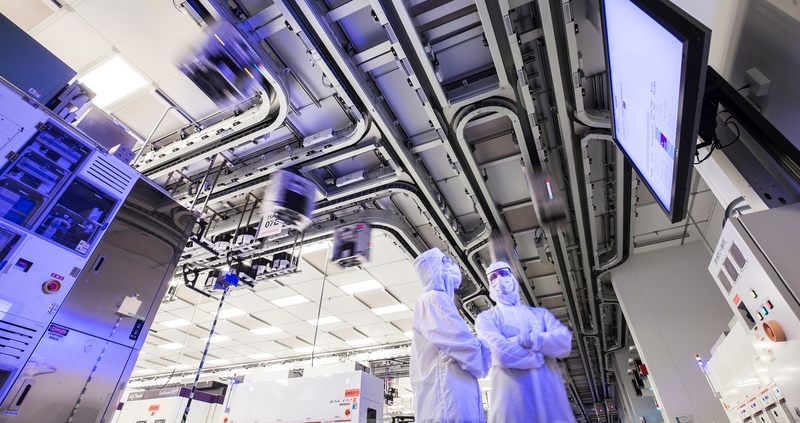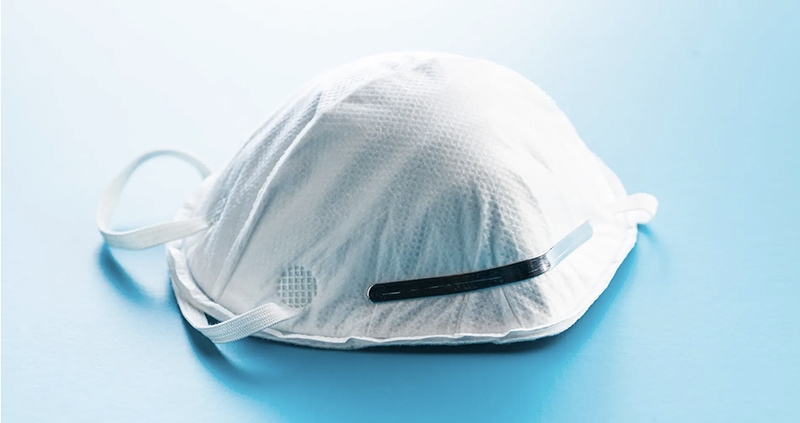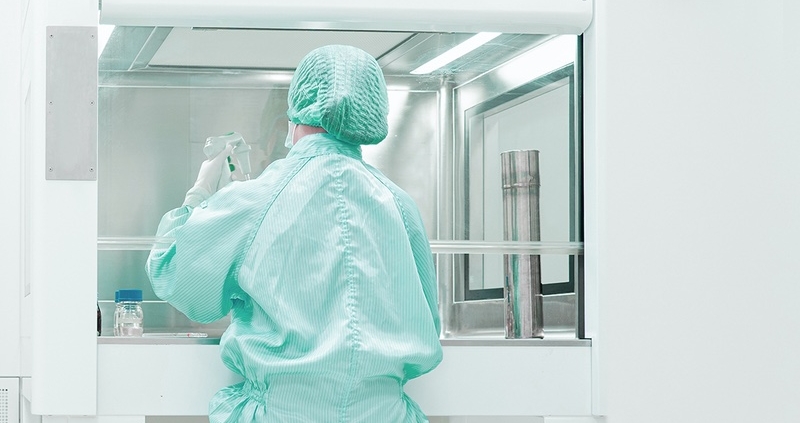Should you double mask in a cleanroom?
Masks are essential personal protection equipment (PPE) for proper cleanroom protocols. But are two masks better than one? A new study published by The Centers for Disease Control and Prevention (CDC) shows that double masking can be more effective at reducing aerosol exposure. In light of these findings, the CDC now offers protocols for double masking. While there are clear benefits, double masking is not always the best practice in every situation. It’s unlikely that you’ll find double masking protocols in any cleanroom management plan. Here’s what you need to know about double masking and your cleanroom.
What the CDC says about double masking
When it comes to protection, it’s not really about wearing multiple masks. It’s about wearing multiple layers. In a study published in February 2021, researchers found that when compared to either a cloth mask or a surgical mask alone, wearing a double mask was more effective at reducing aerosol exposure.1
The CDC recommends two ways to increase your layers of protection:
Choose a mask with multiple layers of fabric.
Wear a surgical mask underneath a cloth mask (double masking).
The CDC cautions against combining two disposable masks or combining an N95 mask with any other mask. These methods will compromise the fit of your mask.2
Quality over quantity
A quality fit is the most crucial component of effective mask wearing. If double masking compromises the fit, then it defeats the purpose.
The CDC provides these tips to ensure that your mask fits properly:
- Your mask should completely cover your nose and mouth.
- Make sure your mask fits snugly against the side of your face and that there are no gaps.
- Choose masks with nose wires. Bend the metal strip along the tip to conform to your face. This prevents air from leaking through the top of your mask.
- Wear a mask fitter or brace. When worn over a cloth or surgical mask, this device will prevent air leakage from around the edges of the mask.
- People with facial hair are encouraged to trim or shave their beard, use a mask fitter, or double mask.3
Proper mask use in a cleanroom
Neither The Food and Drug Administration (FDA) nor the CDC set guidelines for cleanroom equipment. The FDA only regulates PPE like surgical masks and N95 masks when they are marketed as medical devices.4 If your cleanroom’s purpose is outside of the medical field, you are likely following International Organization for Standardization (ISO) or Current Good Manufacturing Practice (CGMP) recommendations for your equipment.
Cleanroom masks are multi-layered and made from materials such as polypropylene that will not shed lint or fibres. The goal is to limit the amount of particles that could contaminate the air or surfaces in the cleanroom.
Some cleanroom management plans require face masks that are “cleanroom rated” based on the amount of particles that flake off of the mask. The ISO classification of the cleanroom will determine just how clean the mask needs to be.
The only CDC protocol for multiple masks is to don a surgical mask underneath a cloth mask. Since cloth masks do not meet cleanroom standards, double masking is not recommended in a cleanroom.
When in doubt about current best practices, turn to the experts. The certification team at Sure-BioChem Laboratories has experience with all classifications of cleanrooms in both scientific and industrial applications. Trust us to certify your cleanroom and train your staff according to ISO 14644-1 and 2 specifications.
Phizzle and GlassHouse collaborate on automated cleanroom monitoring
Phizzle and GlassHouse Systems of Toronto have joined forces to create a managed service offering that provides a flexible way to automate cleanroom monitoring and enable remote, real-time operations of environmental equipment used in R&D and manufacturing cleanrooms by both large and small organisations.
Phizzle is a pioneer in automating scientific devices such as particle counters used in pharmaceutical manufacturing to monitor environmental conditions in drug production; GHS is a leading enterprise IT services and infrastructure solutions provider.
The two companies are working in partnership with IDSC (Institute for Data Science and Computing) to deploy a remote environmental monitoring solution for the Biomedical Nanotechnology Institute at the University of Miami.
There’s no longer a need to see testing as something that is only affordable on an annual or semi-annual basis
“Phizzle and GHS have shattered the test and trust paradigm for cleanroom validation by leveraging their proven technology to create a cleanroom monitoring managed service that allows us to automate testing and remotely monitor the status of our cleanroom in real-time,” said Sung Jin Kim, Associate Professor in the Department of Electrical and Computer Engineering and the facilities director for the BioNIUM cleanroom facility. “We believe that this best-in-class monitoring solution will substantially bolster our ability to drive industry partnerships and student opportunities.”
Due to the high cost of lab technicians to manually perform repeated air quality measurements, many smaller cleanroom operators struggle to economically perform consistent or real-time tests of environmental conditions; many are also challenged by the high cost of compliance requirements for ISO standards.
“The breakthrough of this offer is the ability of all sized cleanrooms to access real-time scientific data that validates successful cleanroom processes or experiments at an affordable price,” said Robert Moniz, President of GlassHouse Systems, US. “There’s no longer a need to see testing as something that is only affordable on an annual or semi-annual basis.”
The service
Phizzle Software and GHS’ Automated Cleanroom PaaS provide an economical solution and is based on Phizzle’s EDGMaker IoT solution. By automating particle counter operation for consistent intervals, and providing the ability to remotely initiate ad-hoc measurements, cleanrooms can be effectively and economically monitored in real time.
Like this story? Subscribe to Cleanroom Technology magazine for incisive analysis of the latest news and developments in hi-tech industries manufacturing in controlled environments.
The Cleanroom PaaS offers four benefits in an affordable model:
- The ability to demonstrate evidence of the environmental state at the time of a process or experience.
- The ability to monitor the effect of processes and personnel on air quality in real-time and respond to maintain optimal room quality.
- The ability to perform proactive maintenance in response to declining air quality to prevent special events that cause errors or downtime.
- Increased use and engagement of university cleanrooms by outside parties due to the implementation of best-in-class monitoring solutions.
“Our joint managed service with GHS makes it possible for smaller companies and university labs to access the same industrial-grade technologies used in pharmaceutical manufacturing by the largest companies in the world,” said Jeff Cristee, Phizzle Chief Revenue Officer.
Backgrounds
Phizzle’s EDGMaker is the only IoT solution to remotely operate and automate multi-vendor particle counters for scientific data applications. The EDGMaker software stack offers fully digitised testing and compliance processes to reduce labour, human error, and wasted batches in regulated manufacturing.
For over 26 years, GlassHouse Systems (GHS) has been designing, implementing and servicing the enterprise IT community with best in class mission-critical infrastructure and professional services. GHS offers fully managed IaaS, PaaS both in the cloud and on premise.




